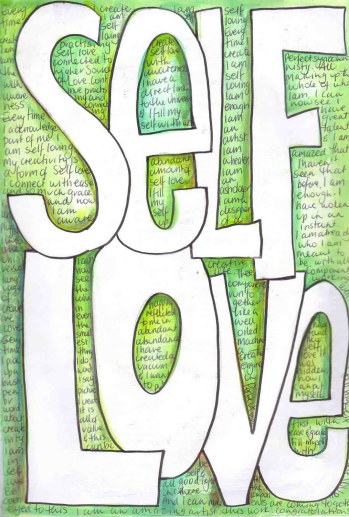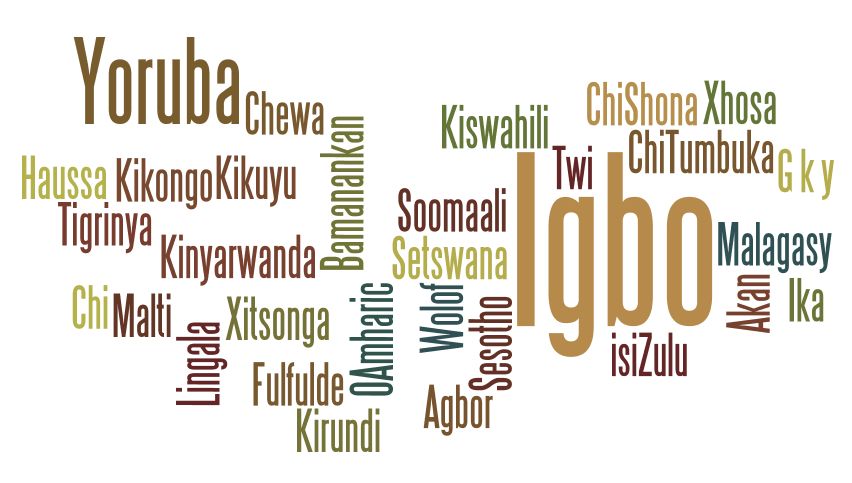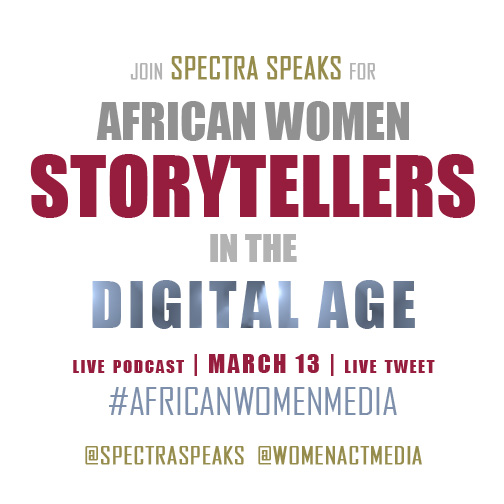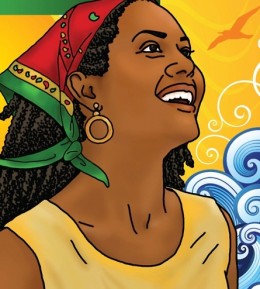I often get requests for practical day-to-day advice for caring for oneself as an activist. It's prompted me to reflect on what it means for activists to really practice self care... not just as some fluffy theoretical concept reserved for the those who can afford fancy yoga retreats, but as…
-
-
African Feminism - Africans for Africa - Afrofeminism - Blog - Diaspora Diaries - Special Series - The Political, Personalized
What Kind of African Doesn’t Speak Any African Languages? Me.
Last year, I attended a conference about Africa's development. In a session about African identity, we explored the question of whether one could claim to be African without being fluent in their mother tongue. Some said yes. But many said no. For this, I blame colonialism... and Sesame Street.
-
Live Podcast: African Women and Girl Storytellers in the Digital Age
On March 13, as part of the Women, Action, and the Media's annual feminist media festival, I'll be hosting a live podcast about African women using media to subvert mainstream narratives about Africa: "African Women Storytellers in the Digital Age." In true kitchen table conversation style, my guests and I…
-
African Feminism - Afrofeminism - Blog - Movement-Building - Self-Care and Self-Love - Special Series - Thought Leadership
Celebrating Audre Lorde with Jamaican Feminists: Activism, Self Care, and Virtual Sisterhood
I was invited by a Caribbean feminist collective to participate as a virtual guest in their Audre Lorde appreciation event this past weekend. After weeks of fighting a winter slump, I ended my Skype session feeling nourished and optimistic, which has prompted some reflecting on the power of sister circles,…
-
Africans for Africa - Afrofeminism - Blog - Gender and LGBT Issues - LGBT Africa - Media - Music - Special Series
Award-Winning African Artist Shishani Releases Video for New LGBT Equality Anthem, “Minority”
Award-winning Namibian indie soul artist, Shishani, has just released the music video for her latest single, “Minorityâ€, a catchy, upbeat, acoustic track that calls for freedom and equality for all people despite perceived differences. She recently sat down with me to chat about her rise to stardom, her thoughts on…
Online rulet oyunları gerçek zamanlı oynanır ve online slot casino bu deneyimi canlı yayınlarla destekler.
İnternet üzerinden eğlence bahsegel giriş arayanlar için deneyimi vazgeçilmezdir.
Kullanıcıların hesaplarına hızlı ve sorunsuz bettilt ulaşabilmesi için adresi her zaman güncel tutuluyor.




